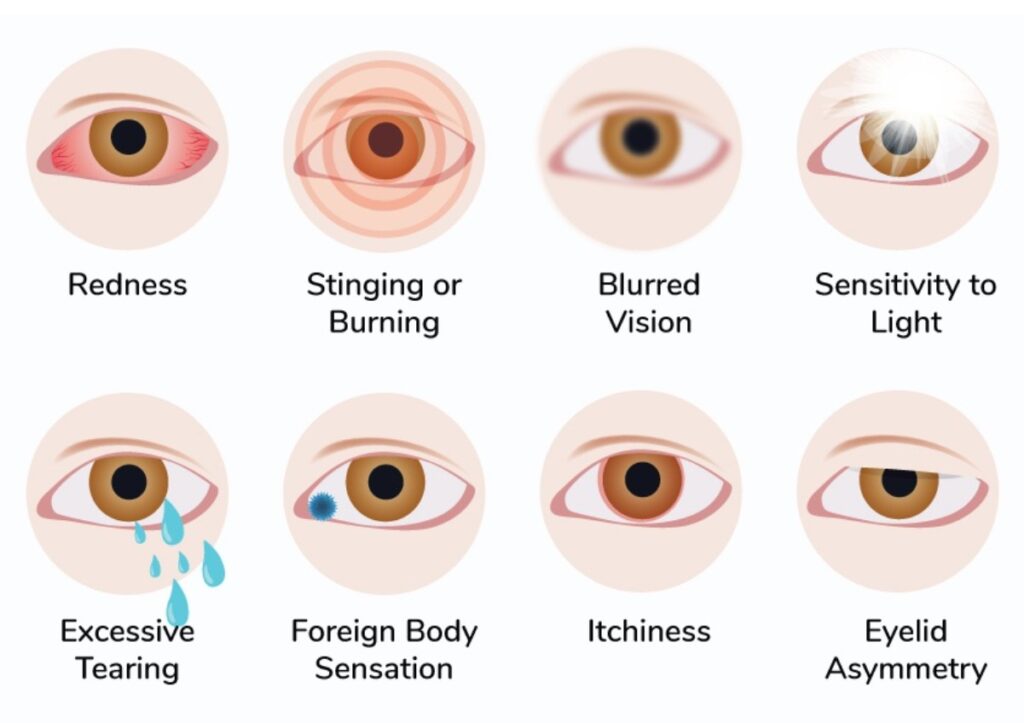Your eyes constantly produce tears at a slow and steady rate so that they stay moist and comfortable. Some people are not able to produce enough tears or the appropriate quality of tears to keep their eyes healthy or comfortable. This condition is known as dry eye.
What are the Symptoms of Dry Eyes?
Sometimes people with dry eyes will experience excess tearing. This is the eye’s response to the discomfort from dry eye. When the eyes get irritated, the gland that makes tears releases a larger-than-usual volume of tears, which overwhelms the tear drainage system. These excess tears then overflow from your eyes.
The symptoms of dry eye include scratchiness, stinging, stringy mucus in or around the eyes, and blurry vision.

Dr. Baynham and Dr. Hayek can usually diagnose dry eye by examining your eyes. Sometimes tests that measure tear production are necessary. The Schirmer tear test measures tear production by placing filter-paper strips between your eyeball and your lower lid. Dr. Baynham and Dr. Hayek may also test you for dry eye using diagnostic drops to check for patterns of dryness on the eye’s surface.
What Treatments are there for Dry Eyes?
- Eyedrops called artificial tears are used to lubricate the eyes and help maintain moisture. Artificial tears are available without a prescription and can be used as often as necessary for relief.
- Punctal Plugs: Dr. Baynham and Dr. Hayek may conserve your tears by closing the channels through which your tears drain.
- Fish or Flax seed oil: Studies have shown that fish or flax seed oil can minimize the effects of dry eyes.
- Nutraceuticals or dry eye vitamins: Certain vitamins have been shown to significantly help improve dry eyes.
- Oasis Tears: New type of eye drop with a unique, viscoadaptive formula, optimized to provide longer-lasting comfort.
- Restasis: This prescription eye drop is a great option for many patients with dry eye symptoms.
You can also try to prevent tears from evaporating by avoiding wind and dry air from overheated rooms and hair dryers. Smoking irritates dry eyes and should be avoided.
It is important for you to know that some cornea disorders have subtle symptoms that can progress if left untreated. If you notice corneal swelling or bulging, blurred vision, or other forms of visual impairment, you may be suffering from a disease of the cornea that could require medical or surgical treatment. To discuss corneal treatment, contact Walton Eye Care to schedule a consultation at (770) 267-4561
